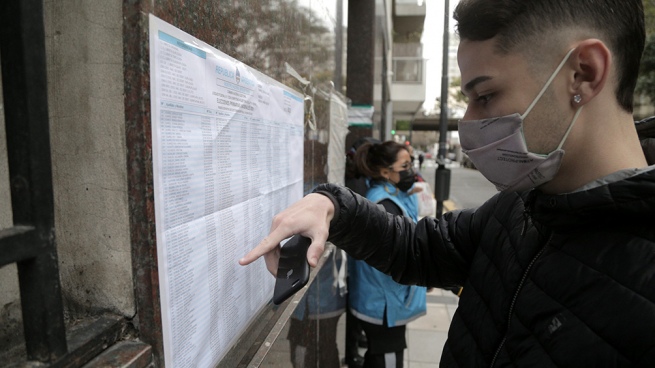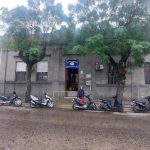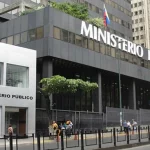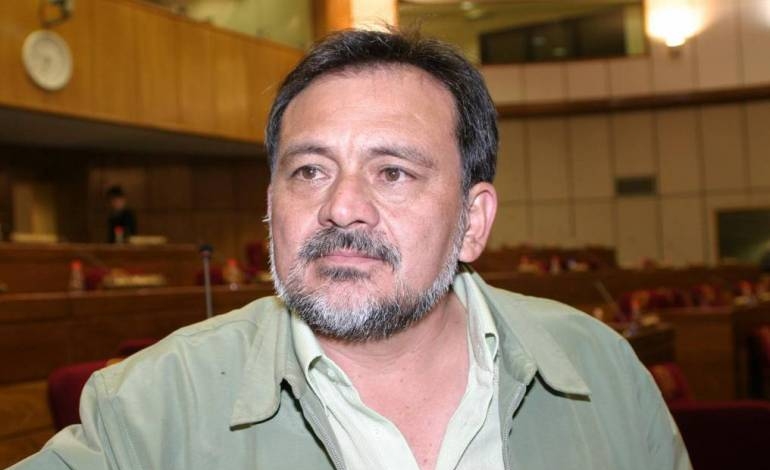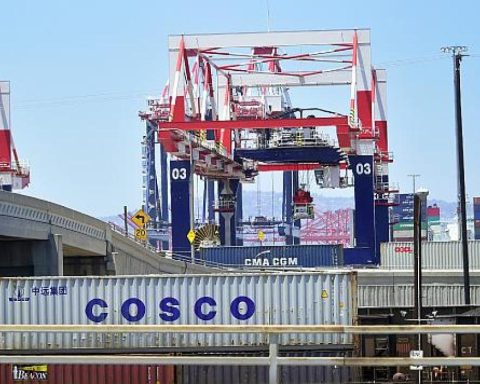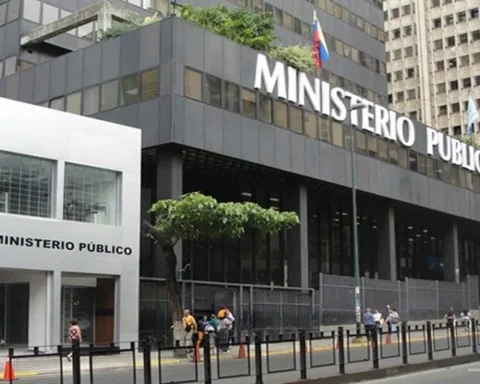A new composition of the National Congress will be defined this Sunday when the results of the legislative elections that will be held throughout the country to renew half of the Chamber of Deputies -127 seats- and a third of the Senate -24- are known, in the last electoral test of the year, after the STEP of September.
Some 34 million Argentines are authorized to vote at the 101,457 tables set up in voting centers throughout the country, under a flexible protocol based on the improvement in the health situation in Argentina, which already has more than half of its population vaccinated with two doses against the coronavirus.
For this Sunday, on an electoral day that will take place from 8 a.m. to 6 p.m., the Government and the National Electoral Chamber agreed -based on sanitary evaluations- modifications in the protocols and the adoption of measures that speed up the vote in the voting centers .
First results
In this way, it is also estimated that the data collection will have a higher rhythm and, as in the PASO of September around 22 o’clock the electoral trends in all the districts were already known, This Sunday the results could be revealed even earlier, between 9:00 p.m. and 9:30 p.m., as said this Friday the Minister of the Interior, Eduardo De Pedro.
With the renewal of half of the Chamber of Deputies and a third of the Senate, the elections will put an end this year to a race that began last July with the presentation of the electoral fronts and the candidates for the competition, which will have its formal closure next December 10 when the new legislators take office.
After an agreement reached between the national government and all the political forces, the date of the PASO and the legislative elections, which are traditionally held in the months of August and October, were run this year -for the only time- due to the epidemiological situation due to the coronavirus and to ensure that a greater amount of the population is immunized with the two doses, a strategy that made it possible to make the protocols for the day this Sunday more flexible.
Definitions and challenges
The midterm elections will define the correlation of forces in Parliament for the second tranche of President Alberto Fernández’s administration.
The challenge of the ruling Frente de Todos (FdT) will be to improve the results obtained in the open, simultaneous and compulsory primaries (PASO) and to shorten the advantage that the opposition coalition Juntos por el Cambio (JxC) achieved in key districts such as Buenos Aires, Córdoba , Santa Fe and CABA.
The new legislative period will be key to accompanying the policies promoted by the Executive, in its plan to reactivate the country after the ravages caused by the coronavirus, while for JxC it constitutes the necessary platform to order internal tensions due to leadership disputes by 2023.
What happened in the PASO?
The PASO represented victories for the ruling party in Catamarca, Formosa, La Rioja, San Juan, Santiago del Estero and Tucumán.
However, the dispute in the province of Buenos Aires, the one with the highest electoral weight in the country because it represents 37% of the electoral roll, gave Juntos an advantage of almost 10 points over the FdT and in Córdoba, the second largest district, the gap was even greater.
The Left Front-Unity it garnered a good flow of votes in the primaries, which allowed it to become the third force at the national level, something that it must revalidate in order to ensure its representation in the lower house.
Of the total of 127 seats that are put into play in the Chamber of Deputies, 60 are in the hands of JxC and 51 in the hands of the FdT.

If the results of the PASO were repeated, the opposition coalition would reach the first minority with 188 seats and the ruling party could lose nine places and stay with 111 deputies, so it would depend on agreements with provincial forces to reach a quorum of 129 legislators.
The competition por the Senate squaresMeanwhile, it will be marked by the aspiration of the ruling party to retain its own quorum in this year’s replacement of the squares of Corrientes, Santa Fe, Córdoba, Mendoza, La Pampa, Chubut, Catamarca and Tucumán.

In addition, twelve provinces and the City of Buenos Aires will also hold local elections this Sunday to designate -according to the regulations of each district- a total of 54 senators, 192 deputies, 1,697 councilors, 42 mayors and other municipal authorities in different localities of the country.
Between them, Santiago del Estero will be the only district that will also elect a governor, position for which the president Gerardo Zamora is competing to be reelected.
After two months since the PASO, the main national forces closed their campaigns this week and the candidates did their last activities before the elections that will reveal if there were changes in the percentages reflected in the primaries.
Words of President Fernández
Faced with the challenge of improving its performance, the ruling party ordered changes in the structure of the Cabinet and encouraged actions to reactivate the economy, hit by the consequences of the impact of the coronavirus in the country.
“There are two models that are still in conflict over which country we want to build. Because in 2019 we voted in one sense and that sense has not been altered. We continue in the same sense: in an Argentina that thinks about investment, work and exports; in an Argentina that recovers education and public health; in an Argentina that expands rights every day; in an Argentina integrated into the world from its sovereignty and its identity, not running after the powerful in power, “said the President Alberto Fernández days before the end of the campaign in dialogue with Télam.
We want an “Argentina that thinks about investment, work and exports; that recovers education and public health; that every day expands rights; integrated into the world from its sovereignty and identity, not running after the powerful in turn “Alberto Fernandez
And he added: “It seems to me that the discomfort and anger of the pandemic made many of them see that the way out was on the other side. Even that the way out was to go back to the past. Do not confuse us; it is the worst of the past “.
JxC, for its part, reinforced its discourse aimed at questioning the government’s management, and focused its major activities and campaign activities in the province of Buenos Aires.
This Sunday, with the changes in the protocols in place for the voting process, the authorities hope to avoid lines and delays and achieve a greater influx of voters.
In the PASO, carried out in an unprecedented context, a participation of 66.21 percent of the register was registered, the lowest since the implementation of the primaries in 2011.
